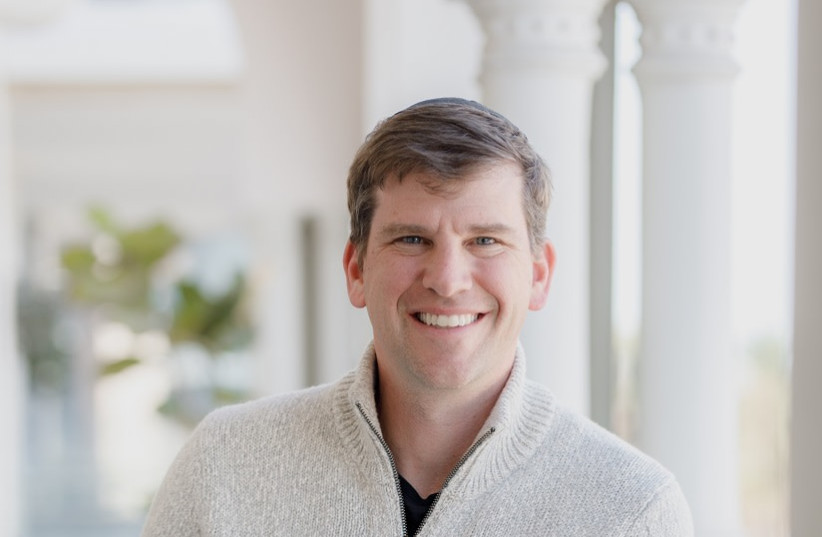Two prominent investors and opinion leaders in the Israeli tech sphere criticized the content of Prime Minister Benjamin Netanyahu’s talk with Tesla CEO Elon Musk.
Prominent venture capitalist Michel Eisenberg took to X to highlight the significance of this meeting in the context of global power dynamics.
“The very fact that the prime minister of Israel met with Elon Musk before he met with the president of the United States conveys something profound about a shift in power in the world. The CEOs of technology companies are stronger today than world leaders. They are a center of power,” he wrote.

'AI's primary purpose should be to empower democracy'
Netanyahu and Musk met on Monday to have a live-streamed discussion on pressing issues surrounding hate speech, the controversial Israeli judicial reform, and the rapid advancement of artificial intelligence.
During the live broadcasted meeting held at Tesla’s factory in Fremont, California, Netanyahu delved into the broader issue of artificial intelligence (AI) and its impact on society. Both expressed concerns about the risks associated with AI’s rapid development.
“We stand today at a juncture for all humanity, where we have to choose between a blessing and a curse,” Netanyahu said, noting the critical juncture humanity finds itself in, where AI could offer significant advancements in fields like medicine, agriculture, infrastructure, and logistics; but also pose risks, such as threats to democracy, crime, and war, and the manipulation of the public.
Netanyahu also noted the pace of AI’s effect on society.
“It’s happening so fast. It took us centuries at least to adapt to the agricultural revolution, it took us maybe a century to adapt to the industrial revolution. We may have just but a few years, which are running out as we speak, to adapt to the AI revolution and I’m not sure that we are. Certainly not in curbing the curses,” he said.
“As the leader of the country that is an AI player – and could be a big player if we have our way, I think we will – then we want to increase the blessings [of AI], not only for ourselves but for all of humanity. We’ve done that with other technological innovations that came out of Israel and many other places,” he continued. “But the real question is, what do we do internationally? What do we do globally to contain the threat?”
In response, Musk explained that the largest issue which has come up in his meetings with western world leaders on the subject is their inability to ensure that every country submits themselves to the same regulation standards of AI development, highlighting China as one of the “very top leaders” in AI development.
Netanyahu went on to explain his theory that, much like the mutually assured destruction model of nuclear deterrence, “If we don’t have a code of conduct between major powers, we’ll have MAC – mutually assured chaos.” He asked Musk whether or not there would be a way of policing bad actors from developing nefarious AI superintelligence, assuming the prerequisite coalition of global actors and a proper code of AI development conduct were established.
Musk answered in the affirmative, explaining that the resources such development would necessitate are quite large, also noting that the heat signature of the vast amount of computational power required to operate an AI superintelligence would be easy to spot from space if using infrared imaging.
Eisenberg criticized Netanyahu for not taking a more proactive approach to staking Israel’s claim in the global development of AI.
“Netanyahu was on the main stage. He made a pitch about Israel’s capabilities but simply missed an opportunity to bring the news. What is Israel’s place in artificial intelligence? What does he intend to do as a leader?” he wrote.
“What do he and the state intend to invest in? How much will he invest in artificial intelligence that is critical to national security and our economic – and even Jewish – future?”
Eisenberg’s criticism of Netanyahu’s AI discussion was backed up by Erel Margalit, founder and chairman of the Jerusalem Venture Partners Fund (JVP) and Margalit Startup City, and a leading investor in Israeli AI tech.
“In the wrong hands, AI could pose the gravest threat to humanity today. As such, it is imperative that AI remains beyond the reach of dictators who undermine, rather than uphold, the interests of the people. AI’s primary purpose should be to serve and empower democracy, rather than surveil or dictate the lives of its citizens. Its allegiance must forever lie with democracy, never falling into the grasp of those who oppose it,” he stated.
Margalit went on to call out the prime minister for allowing the judicial reform plan to move forward, stating that “Netanyahu’s attempts to transform Israel’s judicial system from a democracy into a form of a dictatorship make him the least suitable candidate to wield control over AI or any other cyber technologies.”
“If entrusted to him, such technology would likely be wielded against the Israeli people, rather than for their benefit,” he stated. “Netanyahu’s extremist racist government is a clear threat and cannot be in charge of this technology, as their intentions run counter to the best interests of the Israeli people.”
